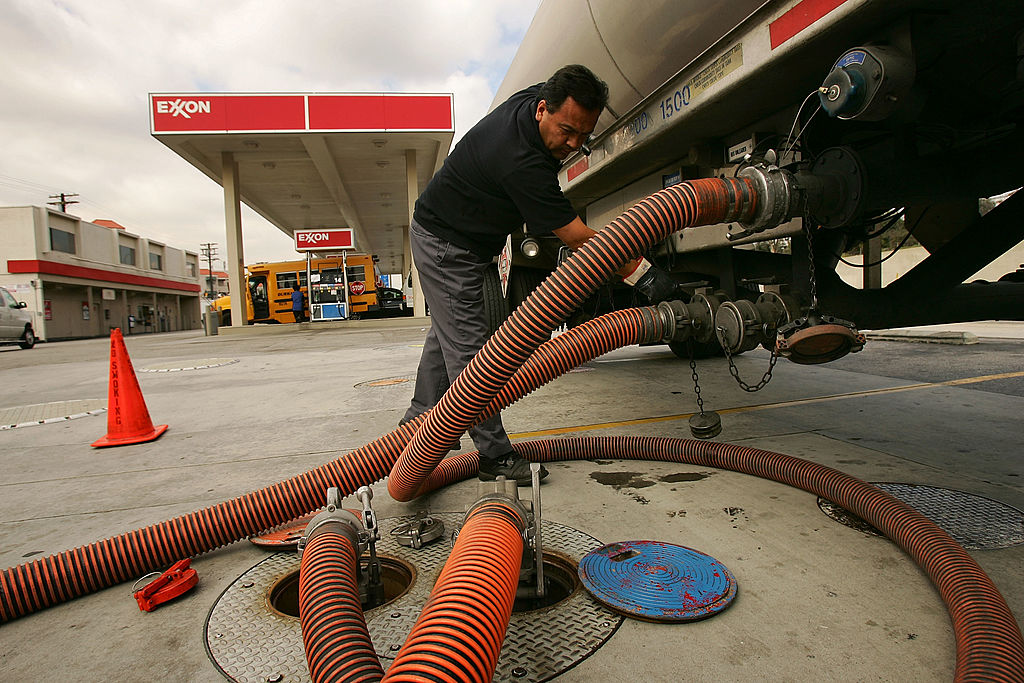In the wake of Russia’s attack on Ukraine, gasoline and energy prices soared in the United States. While they’ve come down a bit since, it’s worth examining why war in Eastern Europe caused a spike in prices thousands of miles away — and whether a common proposal in response would have made a difference.
Over the last decade, Republicans and Democrats have made “energy independence” a major policy priority. The goal in a nutshell is to produce the energy we need at home, so that the United States is more insulated economically from international disputes abroad. On this goal, advocates have made progress — in fact, the United States is already energy independent by some measures. We export more energy than we bring in — and yet oil and gasoline prices still skyrocketed in response to Russia’s invasion.
Cue yet more calls for energy independence.
Our experience with gasoline prices during the conflict in Eastern Europe should finally put to rest the idea that simply producing energy domestically means we won’t be subject to world events. But as usual, it has proven easy to fall back on talking points.
The economic picture is, of course, more complicated. The prices of energy and gasoline, like wheat, gold and, yes, even orange juice, are determined by buyers and sellers in a world market. Even though domestic production is significant and responsive to global demand, the integrated nature of energy and gasoline markets means that international events impact buyers and sellers — and thus prices, too, regardless of US independence.
Most of the time, this is actually a good thing, because trade itself is a good thing. Trade means that people with different backgrounds, skill sets, talents and expertise have decided to specialize in what they’re good at and then engage in mutually beneficial economic transactions with one another. Trade makes both sides better off; it’s a story nearly as old as economics itself. Despite horrific exceptions like the war in Ukraine, countries that trade together remain less likely to go to war.
For some reason, however, when it comes to energy, politicians on both sides forget the lessons they should have learned in school. As a recent press release from Republican senator Mike Braun commands: “Replace Russian oil with energy made in America — not Venezuela, not Iran, not Saudi Arabia — AMERICA.” It’s a demand that sounds an awful lot like President Joe Biden’s State of the Union appeal: “Instead of relying on foreign supply chains, let’s make it in America.”
An editorial in last month’s New York Times lays out a similar perspective: “Russia’s belligerence against Ukraine is underscoring once again the inextricable link between national security and energy security.” In other words, if we don’t become energy independent — and for these left-of-center authors, that means “clean energy” — then we will always be at the mercy of world events.
There is, of course, some merit to this argument. In an invasion, having ready access to raw materials is vital to national survival. But proponents of energy independence make claims about its benefits that go well beyond its potential value in times of war. President Biden even recently suggested that energy independence will “protect our economy over the long term.” Particularly considering the level to which the US has already achieved independence, claims like this should be met with skepticism.
More broadly, just as it doesn’t make sense to grow all our oranges in Massachusetts, it also doesn’t make sense to get all our energy from within our own borders. If lawmakers were serious about reducing our exposure to future shocks, there’s plenty we could do that would help. Taking a lesson from Europe and reconsidering the role of nuclear power in our energy mix would be a good start; so would lifting or revising the wrongheaded Renewable Fuel Standard that props up less efficient domestic ethanol.
The reality is that both parties are wrong in their approach to energy. Bipartisan support for protectionist energy policies doesn’t do us any favors in normal times — and as our experience over the last month shows, it does little to shield us from worldwide turmoil when it arises.
Years of trying should have proven that the protectionist idea of “independence” cannot insulate us from world events and the realities of trade. Continuing to pursue it may sound good as a slogan, but quickly falls apart in reality.

























